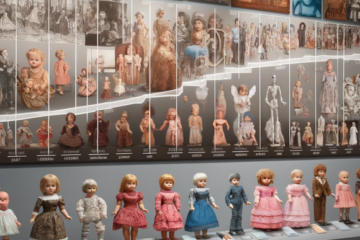In the realm of childhood, nestled amongst the chaos of playrooms and the innocence of imagination, exists a timeless companion: the doll. More than just an object of play, dolls serve as pivotal tools in the delicate art of nurturing and the cultivation of empathy. Through their tender embrace, they impart invaluable lessons on care, responsibility, and the intricacies of human connection.
From the earliest stages of development, children are drawn to dolls like magnets, instinctively gravitating towards their comforting presence. In the soft curves of their forms and the gentle gaze of their eyes, young minds find solace and familiarity, forging bonds that transcend the tangible. With each tender touch and whispered conversation, children embark on a journey of discovery, exploring the boundless depths of empathy and compassion.
At the heart of this enchanting relationship lies the profound lesson of care. Through the act of cradling a doll in their arms, children learn the significance of tenderness and the nurturing touch. They discover the transformative power of empathy as they tend to their doll’s needs, whether it be feeding, bathing, or comforting. In these simple yet profound gestures, children begin to comprehend the essence of caregiving, cultivating a sense of responsibility that extends far beyond the confines of play.
Moreover, dolls serve as mirrors reflecting back the values and dynamics of the world around us. As children engage in role-play scenarios with their dolls, they mimic the behaviors and interactions they witness in their daily lives. In this process of emulation, they internalize societal norms and expectations, weaving them into the fabric of their burgeoning identities. Through the lens of their dolls, children explore diverse roles and relationships, from nurturing caregivers to doting siblings, laying the foundation for a deeper understanding of human dynamics and interpersonal connections.
Yet, the significance of dolls transcends the realm of childhood play, extending its reach into the realm of education and social development. In classrooms and therapy sessions alike, dolls emerge as powerful tools for fostering emotional intelligence and empathy. Through structured activities and guided discussions, educators harness the symbolic power of dolls to facilitate dialogue around complex emotions and interpersonal dynamics. In therapeutic settings, dolls serve as conduits for expression, allowing individuals to externalize their inner struggles and navigate the complexities of human relationships in a safe and supportive environment.
In essence, the role of dolls in the construction of relationships of care and responsibility is profound and multifaceted. From the tender embrace of childhood play to the structured realms of education and therapy, dolls serve as catalysts for empathy, compassion, and self-discovery. Through their timeless presence, they remind us of the inherent humanity that binds us together, transcending boundaries of age, culture, and circumstance. In the embrace of a doll, we find not only a source of comfort and companionship but also a profound reflection of our capacity for love and nurturing—a testament to the enduring power of human connection.



0 Comments